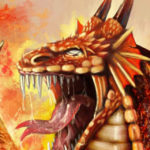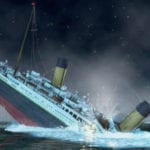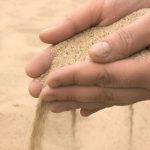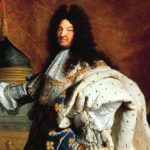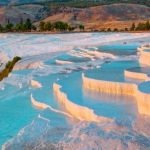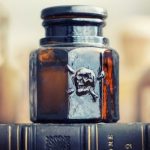 Animals
Animals  Animals
Animals  Weird Stuff
Weird Stuff 10 Weird Things People Used to Do at New Year’s
 Our World
Our World 10 Archaeological Discoveries of 2025 That Refined History
 Weird Stuff
Weird Stuff 10 Fascinating Facts You Might Not Know About Snow
 Miscellaneous
Miscellaneous Top 10 Things Crypto Was Supposed to Change & What Actually Did
 History
History 10 Huge Historical Events That Happened on Christmas Eve
 Music
Music 10 Surprising Origin Stories of Your Favorite Holiday Songs
 History
History 10 Less Than Jolly Events That Occurred on December 25
 Weird Stuff
Weird Stuff 10 Funny Ways That Researchers Overthink Christmas
 Politics
Politics 10 Political Scandals That Sent Crowds Into the Streets
 Animals
Animals 10 Species That Refused to Go Extinct
 Weird Stuff
Weird Stuff 10 Weird Things People Used to Do at New Year’s
 Our World
Our World 10 Archaeological Discoveries of 2025 That Refined History
Who's Behind Listverse?

Jamie Frater
Head Editor
Jamie founded Listverse due to an insatiable desire to share fascinating, obscure, and bizarre facts. He has been a guest speaker on numerous national radio and television stations and is a five time published author.
More About Us Weird Stuff
Weird Stuff 10 Fascinating Facts You Might Not Know About Snow
 Miscellaneous
Miscellaneous Top 10 Things Crypto Was Supposed to Change & What Actually Did
 History
History 10 Huge Historical Events That Happened on Christmas Eve
 Music
Music 10 Surprising Origin Stories of Your Favorite Holiday Songs
 History
History 10 Less Than Jolly Events That Occurred on December 25
 Weird Stuff
Weird Stuff 10 Funny Ways That Researchers Overthink Christmas
 Politics
Politics 10 Political Scandals That Sent Crowds Into the Streets
10 Things You May Not Know about the Fourth of July
The Fourth of July is a federal holiday in the United States commemorating the Declaration of Independence, which was ratified by the Second Continental Congress on July 4, 1776. This automatically became the date of birth of the United States. On every fourth day of July, the entire nation hosts a birthday anniversary, usually celebrated with fireworks, parades, barbecues, picnics, concerts, hotdogs, and more.
But before you fire up the grill and whip up some delicious burgers, take the time to check out these little-known facts about the holiday. These are ten things you may not know about the Fourth of July:
Related: 10 Holidays No One Celebrates
10 Not Every American Founding Father Approved the July 4 Date
During the American Revolution, the thirteen colonies separated themselves from Great Britain on July 2, 1776, when the Second Continental Congress voted to approve a resolution of independence. After the vote, the Congress turned its attention to the document itself, which had been drafted by the Committee of Five—John Adams, Roger Sherman, Robert Livingston, Benjamin Franklin, and Thomas Jefferson. The Declaration of Independence was a strong statement explaining the decision of the Congress. It took two days for the Congress to accept all the changes it wanted. So the official adoption of the Declaration did not take place until July 4, 1776.
To this day, Americans have celebrated Independence Day on July 4 and not July 2, when Congress approved the resolution of independence. John Adams, one of the Founding Fathers and the second president of the United States, wanted the American Independence anniversary to be July 2 because, technically, that was the day America became independent. However, the others wanted it the other way.[1]
9 There Were Only 2.5 Million People in the U.S. on July 4, 1776
On July 4, 1776, the estimated population of the United States of America was 2.5 million. It is now 334,995,511, an unbelievable figure compared to the day the nation was born. From 1960 to 2021, the population of the United States increased by 83.7%—that’s only 61 years. This saw an increase from 180.67 million to 331.89 million people.
From the moment of the American Declaration of Independence, it was assured that the new nation would eventually become the leader of the free world, with over 50 million immigrants residing within the country as of 2017. In the past, all roads led to Rome; now, all roads lead to New York City.[2]
8 It Took 94 Years to Make the Fourth a Federal Holiday
It appears unbelievable, but it took 94 years for the Fourth of July to become a federal holiday. Exactly a year after the Declaration of Independence was adopted, Philadelphia kicked off Independence Day celebrations in 1777 by adjourning Congress and celebrating with bonfires, bells, and fireworks. The Independence Day celebration became more widespread at the end of the War of 1812.
Celebrations of July 4 became more common as the years went on. In 1870, 94 years after the Declaration was written, Congress established July 4 as a federal public holiday. In 1938, Congress converted July 4 from an unpaid federal holiday to a paid one.[3]
7 President Zachary Taylor Died After Falling Ill at a July 4 Celebration
President Zachary Taylor served as the 12th president of the United States from 1849 until his death in 1850. Taylor was a career officer in the United States Army, rising to the rank of Major General and becoming a national hero for his victories in the Mexican-American War. This led him to win the American presidential election.
On a scorching Fourth of July in Washington D.C, President Taylor attended the events celebrating the anniversary of American Independence. He gulped down a large quantity of cherries and iced milk before returning to the White House, where he also gulped down water. The food consumed by President Taylor made him sick, and he died on the evening of July 9, 1850, after four days of suffering from symptoms that included severe cramping, diarrhea, nausea, and dehydration.[4]
6 America’s Founding Mother?
As British forces pursued George Washington’s Continental Army out of New Jersey in December 1776, a scared Continental Congress packed the Declaration of Independence into a wagon and escaped from Philadelphia to Baltimore. Weeks later, they learned that they were winning the Revolution and that Washington had crossed the Delaware River and defeated the British at Trenton and Princeton. This emboldened the members of the Continental Congress, who ordered a second printing of the Declaration of Independence and, for the first time, printed their names on it.
For the job, Congress called on one of the most important journalists and publishers of the American Revolution Era—Mary Katharine Goddard. She took a huge risk in printing the Declaration because, at that time, the British considered the Declaration a high treason against the British Crown, and anyone unlucky to be caught got a corresponding punishment.
However, Goddard printed the document anyway. She decided to also print her name on the Declaration of Independence. So below the names of the American Founding Fathers is the name of Mary Katharine Goddard—cementing her name in history as America’s Founding Mother.[5]
5 Not Everyone in America Was Free on July 4, 1776
The independence of the United States was a great event, but not every American was a free man on Independence Day. Enslaved people in America still remained slaves. Slavery as a practice was one of the reasons responsible for the American Civil War, which began in 1861. White Southerners left the Union to form a slave-holding republic.
Slavery began in the United States when a Portuguese ship brought about 20 enslaved Africans into the country. It grew so quickly that on Independence Day, slavery as a concept was legal in all 13 colonies of the United States. The election of Abraham Lincoln, the candidate of the Republican Party, a party that opposed slavery, made Southern states take drastic action by leaving the Union. After the victory of the Union in the Civil War, the United States abolished slavery in its entirety in 1865.[6]
4 The Philippines Gained Independence from the U.S. on July 4
In a surprising twist of fate, the United States is not the only country in the world that became independent on July 4. The Philippines also became independent on July 4. The Philippine Islands were under American control from 1898 to 1946. It started first as a territory and became a Commonwealth in 1935.
During the Second World War, Japan invaded and occupied the Philippine Islands. The occupation lasted from 1941 to 1945. This made the Philippines Commonwealth government operate from exile. The Commonwealth Government-in-Exile was initially based in Australia but later moved to the United States.
After the defeat of Japan in the Second World War and the withdrawal of Japanese military forces, the United States granted the Philippines independence, and the country became the Republic of the Philippines. The Philippines became independent on July 4, 1946, when Americans celebrated their own independence anniversary back home.[7]
3 Americans Consume 150 Million Hot Dogs on July 4
According to the National Sausage and Hot Dog Council (NHDSC), Americans are expected to eat 150 million hot dogs over the July 4 holiday alone. There are several factors responsible for the popularity of hot dogs on July 4. One is Nathan’s Famous International Hot Dog Eating Contest, held annually on July 4. This is how the contest began.
The story of Nathan Handwerker is comparable to that of many American dream stories. Nathan always dreamed of a better life when working at a restaurant run by Charles Feltman in Coney Island. Feltman is often recognized as one of the forefathers of hot dogs. Nathan later left Feltman’s restaurant to start his own hot dog shop to fulfill his dream. At the start of his business, Nathan Handwerker sold his own hot dogs for half the price of those at Feltman’s. He did this with the goal of making more sales.
Nathan Handweker was working at his hot dog stand on July 4, 1916, when he overheard four immigrants arguing about who was most American among them. Handwerker proposed to the men that whoever ate more of his hot dogs would be the most American, and the men accepted the challenge. The contest was won by an Irish immigrant, James Mullen, who ate 13 hot dogs in 12 minutes. This was how the famous hot dog eating contest was conceived.[8]
2 Denmark Also Celebrates July 4
Every July 4, it is customary for American expatriates across Europe to gather in military bases and bars to celebrate American independence. However, ordinary Europeans celebrate the red, white, and blue in one European country on July 4.
The tradition of Danes celebrating American independence in Denmark is as old as 1912. It would be the most noticeable celebration of American independence by foreigners on foreign soil if there was any other celebration elsewhere. In Denmark, the celebration begins as early as July 2 and winds up on July 4 with lunches, picnics, and fireworks.
But why, you ask? Well, Denmark wanted to honor the United States’ open acceptance of Danish immigrants and to strengthen the friendship between the two countries. The celebration, called Rebildfesten, takes place annually in Rebild National Park in northern Jutland and is considered one of the largest 4th of July celebrations outside the United States.[9]
1 Three Presidents Died on July 4
Amazingly, three American presidents died on July 4. Since there have only been 45 of them, that’s a pretty stunning tidbit of trivia. Thomas Jefferson and John Adams both died on July 4, 1826, the 50th anniversary of the Declaration of Independence, while James Monroe, the fifth president, died on July 4, 1831.
The death of these three presidents marked some of the oddest coincidences in American history. It is difficult to answer the question of how two American Founding Fathers and past presidents managed to die on the same day, the day of the independence anniversary, for that matter, while a third president died on the same day, five years later. This is a coincidence that has no parallel.[10]
